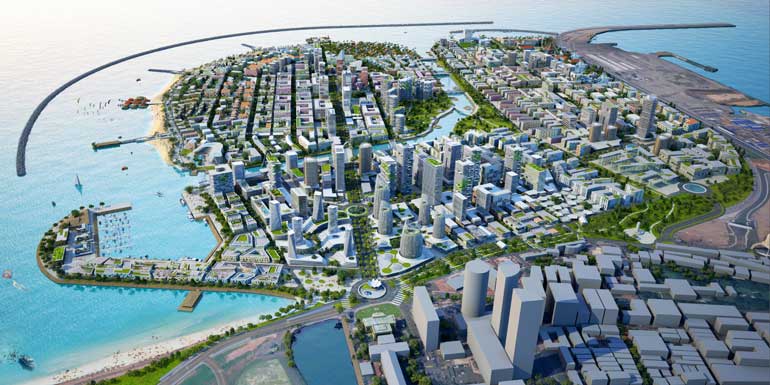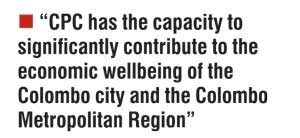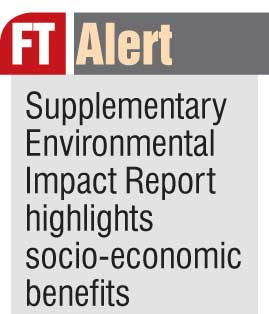Monday Feb 23, 2026
Monday Feb 23, 2026
Monday, 14 December 2015 00:00 - - {{hitsCtrl.values.hits}}


The Supplementary Environmental Impact Report (SEIA) for the Colombo Port City (CPC) project says the main objective of the CPC is to create a regional business hub - a distinctly branded city, with high quality public spaces and infrastructure facilities, which would attract local and international developers and investors.
The ultimate goal is to establish the city as a centre for finance, tourism, shopping and entertainment, attracting new investments and new buyers of real‐estate as well as tourists who will spend more money in Sri Lanka.
The SEIA reports that the structural changes of the economy over the past ten years indicate the dominance of service sector economic activities, particularly in the areas of tourism, ICT, ports and shipping, retail, transport and financial services. The report states that the CPC has the capacity to contribute towards service sector oriented growth and development by attracting high profile FDI’s and generating a wide range of direct and indirect benefits to the national economy.
The project, which is to be implemented over a 25-year period, does not involve replacing any economic activities in the area of its location or its immediate neighbourhood. Thus, the benefit generated by the entire reclaimed land becomes an additional asset to Sri Lanka as a result of a Foreign Direct Investment (FDI). 
According to an integrated master plan which is to be developed, the CPC will create a significant amount of additional oceanfront land thus providing opportunities for expansion of Colombo’s Central Business District (CBD).
Further, through planned development, the government of Sri Lanka will be able to envision some of its objectives as outlined in the Regional Structure Plan of 2004 (the CESMA Plan), without the burden of spending state resources.
Additionally, oceanfront land within the Colombo CBD would encourage finance, commerce and residential living within close proximity to each other. The CPC project therefore creates new land that will generate economic returns to the government, the investor, the city and the country as a whole, according to the report.
The positive impacts of the project include employment creation, enhanced foreign investment, positive revenue generation to the government, transfer of technology and value added contributions to the national economy. Once the physical, socio‐economic and environmental impacts of the CPC are identified and quantified, the next step of analysis is to monetize these impacts with economic prices.
The report further states that the proposed CPC has the capacity to significantly contribute to the economic well‐being of Colombo city and the Colombo Metropolitan Region (CMR). Benefits include jobs generated at the CPC and multinational firms, jobs supporting local purchases made by local and foreign employees within CPC and firms that provide services to the CPC companies including office supplies and equipment, utilities, communications and professional services.
The CPC project has the potential to generate a wide range of indirect socio-economic benefits such as high profile FDI which will thereby create direct employment mainly for professional and technical occupations in areas such as Information Communication Technology (ICT), banking, fund management, investment banking, real estate, and retail and tourism sub‐sectors. The employees in these occupational groups are expected to be well paid and have the capacity to create indirect employment in the national economy due to high disposable income. Additionally, the project has the capacity to attract high profile FDI particularly for high value added service sector investments and headquarters of export manufacturing establishments. The immediate impact of such investments would be an increase in GDP and also an increase in foreign exchange earnings.
In addition to job creation, other long-term outcomes include fostering modern management practices in various fields that will improve living standards in Colombo. Through the utilization of world-class residential spaces, the project will also extend socio-economic benefits. Additional economic benefits include an increase in higher paying jobs related to international trade and the movement of greater amounts of imports and exports through the Colombo Port.